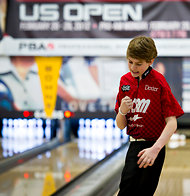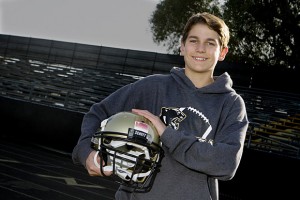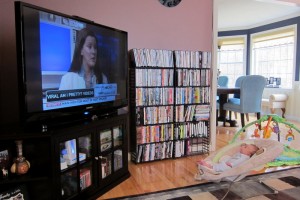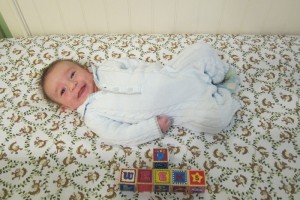This article originally appeared on The Huffington Post Books. "My life has been one big audition."
This is the first line of Elizabeth Eulberg's latest young adult novel, Take a Bow [Scholastic, April 1, 2012]. Take a Bow follows four young performers--two songwriters, one singer, and an actor--through their senior year at the fictional New York City High School of the Creative and Performing Arts (seemingly modeled off of Manhattan's Fame high school, the Fiorello H. La Guardia High School of Music and the Arts) as they strive, perform, and chart their futures. The book reads quickly and it will appeal to various young readers thanks to its range of characters, romantic storylines, and behind-the-scenes look at what is required of talented teens (though some may find the intermittent insertion of flashbacks and backstory confusing).
While we readers may feel exhilarated by the success and talent of the story's stars, it's clear that they are quite exhausted by their daily lives. Female songwriter, Emme, declares herself to be "tired of the auditions we have to do to be accepted each semester, tired of the extra classes and studios, tired of the concerts, the pressure, the competition. The constant competition." On top of regular auditions there are also pre-auditions for the most prestigious college music programs, like Julliard. These kids never get a break.
Television shows, like Glee, make it seem like musical numbers--complete with choreography and costumes--are simple to throw together. But teens spend hours honing their creative crafts whether they are singing and acting, like the characters in Take a Bow, or dancing and film-making, like the characters in Carol Tanzman's latest dancergirl.
CLICK HERE TO KEEP READING AT THE HUFFINGTON POST BOOKS!
dancergirl features high school student Alicia, a contemporary dancer who works at her dance studio to help afford extra dance and choreography classes. While she hopes to become a professional dancer, fame comes to her sooner than she expected when a classmate features her and her dancing in a series of short docu-style movies that he posts to online website Zube (a fictional version of YouTube). Suddenly strangers recognize Alicia and think they know her. And one person starts stalking her (though the careful reader will figure out who the stalker is before the big reveal it doesn't take away from the suspense of the story). The unwanted attention, including anonymous online comments, impacts Alicia's dancing, sense of self, and her physical safety.
Like Alicia many young girls today are constantly performing for others, even if they aren't dancers. Recently t(w)een girls have used YouTube to ask strangers if they are pretty or not. Technological innovations like YouTube and Facebook mean that kids today are constantly performing for others--and there will be a record of their achievements and failures, good deeds and misdeeds.
Clearly it's not just high school students who feel the pressure of the constant audition and performance of daily life. Children's literature reflects pressures for the elementary school-set as well. As an indication of how ubiquitous competitive activities are in young girls' lives, American Girl's "Girl of the Year" for 2012 is McKenna.
McKenna is a fourth-grader hoping to make the competitive gymnastics team. The first two books in the series, McKenna and McKenna, Ready to Fly!, detail her struggling to balance school, friends, and gymnastics as she deals with injuries and competition. The books reveal that one has to receive a letter to be invited to qualify for the "preteam," that certain elements are required in each routine to even be considered for that preteam, and that placing in the top two at a competition is what it takes to actually make the team.
Overall these four young adult/children's books reflect what is going on in many kids' lives today. The constant competition and evaluation--both by peers and by judging adults--are accepted by youth. While some parents fight against demanding, competitive activities and stressful schoolwork, (for example, documentaries like Race to Nowhere), others seem to accept that this is what is required if they want to help their children achieve and get into college. A whole afterschool industry exists around competitive performance activities like gymnastics and dance for kids that reinforces how important these activities are for parents.
While Take a Bow, dancergirl, and the McKenna books don't explicitly offer coping strategies for kids dealing with the constant auditions they must navigate, all the novels highlight the importance of friends in coping with competitive pressure. If one of the reasons why we read fiction is to see, and better understand, our own lives, these books will be welcome reads for children and teens struggling to get a callback every day.








